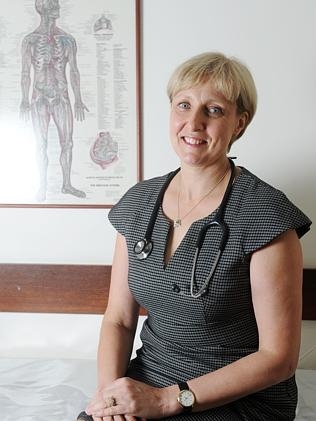
CUTTING “futile care” would be better than slashing GP funding to make Medicare sustainable, the Australian Medical Association has declared.
The AMA’s SA president, Patricia Montanaro, says savings can be made by cutting expensive treatments that offer no prospect of lengthening or improving life.
The Government was yesterday forced to scrap plans to cut the rebate for GP visits of less than 10 minutes by $20.
New Health Minister Sussan Ley said the cuts were “off the table” because the Government planned to “pause” and consult further.
But she reiterated there would be new costs for seeing doctors and $5 cuts are still on the cards for July. She did not know of another plan to save Medicare, she said.
~~However, the AMA (SA) says there are better ways to make Medicare sustainable.
President Patricia Montanaro said savings could be found by cutting out “futile care”, where people were given expensive (and often risky) treatments with no hope of lengthening life or improving quality of life.
“We’re continuing to push treatments that may not be what – if you could explain them to the patient and had other options for them – what they would choose,” she said.
“Futile care is when no amount of medical intervention would prolong your life expectancy. It’s common. This is where the thrust of care should be supported care, palliative care.
“(It’s) usually in the last three months of life, where being hooked up to machines doesn’t make a difference.”
~~Dr Montanaro said there was no immediate fiscal emergency and long-term savings could be found through rational discussions about treatments where risks were very high and the benefits were very low.
She also questioned why money from GP co-payments had been earmarked for a $20 billion health research fund if there really was a budget crisis.
“I would hate to have to say to someone dying of cancer ‘you have to pay an extra $5 for a fund you’ll never see’,” she said.
Ms Ley has said “doing nothing is not an option”, and Prime Minister Tony Abbott has urged doctors critical of his Government’s Medicare reforms to come up with an alternative.
The AMA says shifting the focus away from useless and expensive treatments would be a viable alternative to make the system sustainable.
South Australia’s “Advanced Care Directive” laws came into effect last July, making it easier for people to explain in advance what their wishes are if they are no longer capable of making decisions for themselves.
The legislation lets doctors withhold “futile” treatment without fear of being sued.
Dr Chris Moy, a member of the SA Health End of Life Decision Making Working Group, has previously said the legislation forced doctors to provide futile care if a family demanded it, but now there were better decision-making processes in place.
Doctors were “gun shy” but now could have conversations about palliative care and whether resuscitation was the best option, he said.
The University of Adelaide’s Associate Professor Bernadette Richards, an expert in bioethics and health law, said money should not be a factor in health decisions, but conversations about health care should happen earlier rather than later in families.
The Government should be running a similar campaign on end-of-life decisions as it had on organ donation, she said.
“We are living longer. Families should be having the discussions,” Assoc Prof Richards said.
“We need to start educating people and helping them to have that conversation earlier to take that burden off doctors.”
Source: The advertiser
